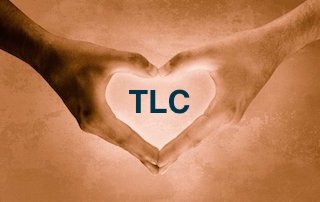We are exposed to toxins from the foods we eat, the air we
breathe, and the water we drink. In the U.S. alone there are 1700 new chemicals
released every year. Only 45% of these chemicals have been tested for toxicity.
Recent research evaluating the blood of newborn babies found industrial
chemicals in their blood. These babies had not yet been exposed to the toxins
in the air or water outside the womb. Testing showed their blood already
contained toxins that they had absorbed from their mother. We do indeed live in
a toxic world.
Without food most humans will die within a month, as long
as they have water. Without water, the human body will survive only ten days.
Water makes up 70% of the body, 90% of the blood, and 85% of the brain. The
rule for water consumption is to drink one-half your body weight in ounces.
Failure to drink sufficient water causes signs of dehydration that most people
have learned to ignore.
Americans do not worry about dehydration. They think that
dehydration is something that happens to travelers in the desert when they run
out of water. Chronic dehydration is widespread today and does not have
immediate symptoms. It affects everyone who is not drinking enough liquid.
Chronic dehydration has been masked by food or with drugs.
Some symptoms and their common remedies are: Peptic Ulcer - Antacids; Craving
Sweets – Sugar; Depression - Anti-depressant drugs; Allergies – Antihistamines.
Dry mouth is a late sign of thirst for water on a cellular level. Saliva is produced even in
chronic dehydration with a dry mouth, because it is a digestive enzyme.
If you have any of these symptoms: fatigue, constipation,
digestive disorders, high or low blood pressure, gastritis or stomach trouble,
respiratory trouble, acid-alkaline imbalance, excess weight and obesity,
eczema, cholesterol issues, urinary infections, rheumatism, and premature
aging, you may need to drink more water.
Drinking clean water is essential to good health. But
which drinking water is the cleanest? You might guess bottled water, but it's
not that simple. Bottled water is not necessarily cleaner than tap water. In
fact, FDA purity requirements for city water systems are far more stringent
than for bottled water companies. The plastic from the bottles can leach into
the drinking water. Bottled water creates more pollution by filling our
landfills with gazillions of wasted plastic bottles. Bottled water is often tap
water that has been filtered once and then sold to the consumer.
Drinking more water is the first action that can be taken
to cleanse the body of toxins. Detoxification is a natural process occurring on
a continual basis in the body, and more water is the easiest way to help
detoxify. Studies show that detoxification improves all the organs of
elimination and results in increased health benefits. The best health insurance
you can have is to do everything possible to cleanse your body to prevent
sickness and disease. Besides increasing water consumption, there are
detoxification diets and programs to help cleanse the body of accumulated
toxins.
There are many different types of detoxification programs.
Besides detoxification diets, there are detoxification programs that focus on
specific organ systems: the skin, liver, kidneys, intestines, lungs, blood and
lymphatic system. Even dietary changes (eating organic) and nutritional
modification (decreasing intake of processed sugars) can be a mild form of
detoxification.
If you are trying a detoxification program for the first
time, it is best to start with a gentle cleanse. Detoxification diets can
target different organ systems involved. In general, it is usually recommended
that you begin with the intestines. If your bowels are not moving adequately
enough to expel the toxins, there will be little benefit from detoxification. Failure to have proper bowel elimination is a sign of dehydration. By focusing on the hydrating the bowels first to increase elimination, you will enhance detoxification.
Spring is the best time to cleanse your body. All native
cultures around the world have spring rituals involving body cleansing to
eliminate toxins that have been stored during the winter. The easiest cleanse to begin with is to increase your consumption of good healthy clean, hydrating water. There are many
detoxification and cleansing programs available at TLC Holistic Wellness in Livonia to help your body become
cleaner on the inside. Call (734) 664 - 0339 for a no charge consultation with Dr. Linda Solomon, DC, CCWFN to learn what detox program would work best for you. Happy Spring Cleaning!
Disclaimer: The recommendations in this article are
not to be taken as medical advice. Please consult a qualified health care
practitioner to obtain your own stress and/or hormone evaluation, and for
specific recommendations on your personal health issues.
